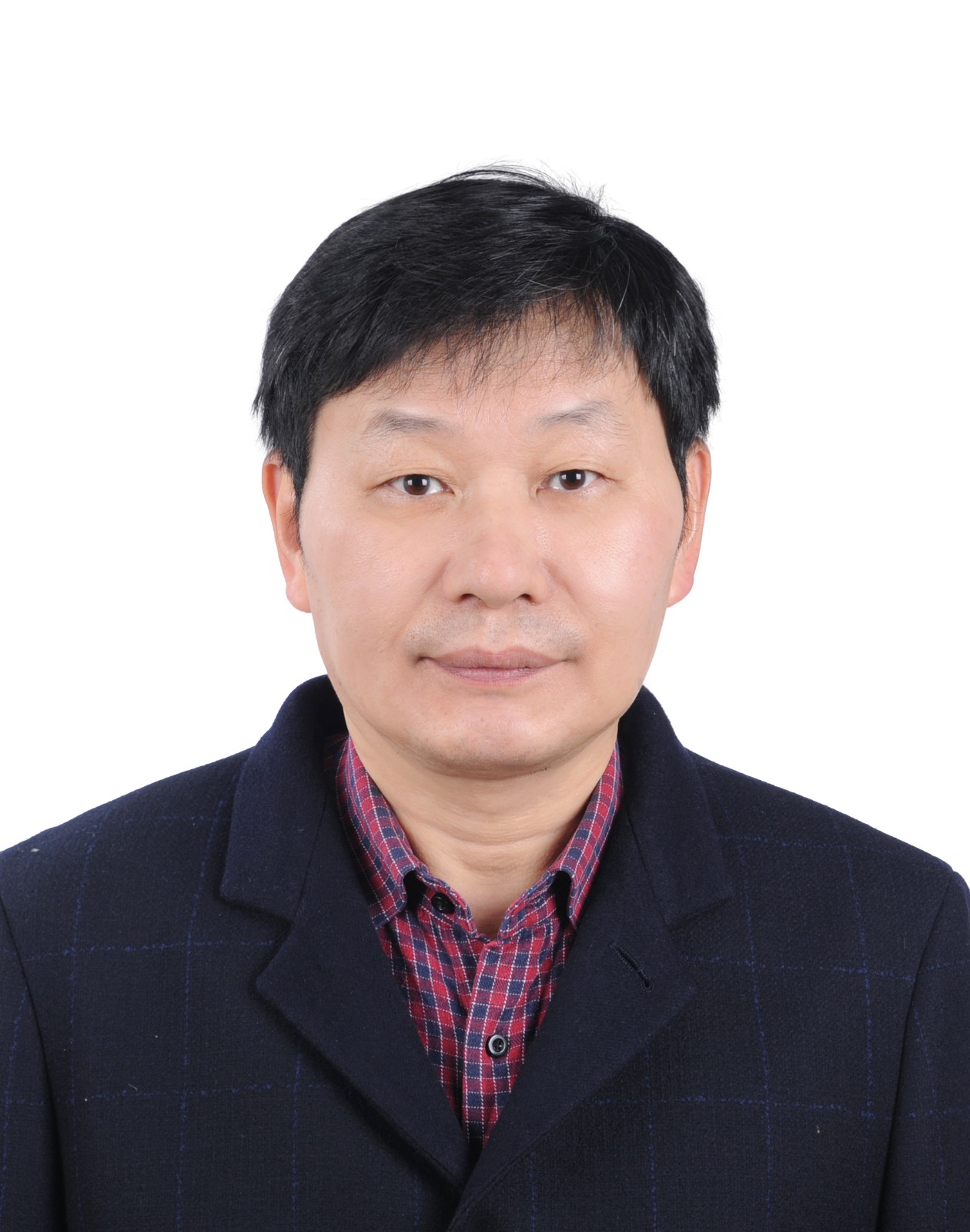| Prof. Xin LuoIEEE Fellow Southwest University, China, China Dr. Luoholds a Ph.D. in Engineering and completed postdoctoral training. Currently serving as a Rank-2 Distinguished Professor and Doctoral Supervisor at Southwest University, he is the Dean of the School of Computer and Information Science · School of Software. An IEEE Fellow and National High-Level Leading Talent, he was selected for the Chinese Academy of Sciences' Hundred Talents Program. He earned his Bachelor's degree in Computer Science from the University of Electronic Science and Technology of China (2005) and a Ph.D. in Engineering from Beihang University (2011). His research focuses on data science, with 350+ publications including 120 CAS Tier-1 journal papers, 151 IEEE Transactions/Journal articles (e.g., IEEE T-PAMI, T-KDE, T-NNLS), and 32 ESI Highly Cited Papers, achieving a cumulative impact factor >1,000. His work has been cited >9,000 times (Web of Science) and >14,000 times (Google Scholar), with an H-index of 74. He has led 7 national and 10+ provincial research projects, securing >¥50 million in funding. With 35 authorized invention patents and 27 commercialized technologies generating >¥200 million in economic benefits, he received the First Prize of Chongqing Natural Science Award (2019, first completer), First Prize of Chongqing Science and Technology Progress Award (2018, second completer), and Wu Wenjun AI Science and Technology Progress Award (CAAI, 2018, third completer). He serves on the editorial boards of IEEE Transactions on Neural Networks and Learning Systems and IEEE/CAA Journal of Automatica Sinica (a Key Journal under China's Excellence Action Plan), earning Outstanding Editor Awards from both (2020-2024). Continuously listed in Stanford-Elsevier's "World's Top 2% Scientists" (lifetime impact) and Elsevier's "Highly Cited Chinese Researchers" since 2022. Speech Title: Nonstandard Tensor Networks Abstract: Complex and temporal interactions among numerous nodes are frequently encountered in large-scale big data-related applications such as the recommender systems, social network service systems, and cryptocurrency network transaction systems. Such interactions data can be quantized into a step-N (N≥3) tensor whose most entries are unknown, i.e., a nonstandard tensor. Despite its highly incompleteness, such a nonstandard tensor contains rich information regarding various desired patterns like the unknown interactions or undetected communities. To discover such patterns, this talk presents the latent factorization of tensors (LFT) models. An LFT model addresses the known data of the target nonstandard tensor in a data density-oriented way and establish highly efficient optimization algorithms for extracting desired latent features from it, thus implementing its representation learning accurately and efficiently. An LFT model has the great potential for industrial usage owing to its high efficiency in both computation and storage. |
| Prof. Xuemin LinForeign Member of the Academia Europaea, IEEE Fellow Shanghai Jiao Tong University, China Lin Xuemin is a Chair Professor at Shanghai Jiao Tong University, where he currently serves as the Head of the Department of Data and Business Intelligence at the Antai College of Economics and Management. Additionally, Professor Lin is a Foreign Member of the Academia Europaea and an IEEE Fellow. He previously held editorial roles at IEEE Transactions on Knowledge and Data Engineering, serving successively as Editorial Board Member, Associate Editor, and Editor-in-Chief, and was an Editorial Board Member for ACM Transactions on Database Systems (2008-2014). Professor Lin has frequently been invited to serve as Program Committee Member, Area Chair, and Program Committee Co-Chair at top-tier conferences in databases and data mining (including SIGMOD, VLDB, SIGKDD, ICDE, and ICDM), notably co-chairing the Program Committees for VLDB 2022 and ICDE 2019. Professor Lin earned his Ph.D. in Computer Science from the University of Queensland, Australia in 1992, following a Bachelor's degree in Applied Mathematics from Fudan University, China in 1984, where he also pursued doctoral studies in Applied Mathematics from 1984 to 1988. After two years as a Research Fellow at the University of Queensland, he joined the Department of Computer Science at the University of Western Australia in November 1994 as a faculty member. In November 1997, he moved to the School of Computer Science and Engineering at the University of New South Wales. Professor Lin has held distinguished visiting appointments as a Distinguished Visiting Professor at Tsinghua University and a Guest Chair Professor at Fudan University, and previously served as an Adjunct Professor at East China Normal University. Speech Title: Applications with Graph Management Abstract: Graph is an important data structure and is used model complex data. It is also used in a variety of applications. In the last 10 years, there has been A great effort from bothacademic and industry society. In today’s talk, I will introduce the applications and brief recent progress in graph management. |
 | Prof. Wanyang DaiNanjing University, China Wanyang Dai is a Distinguished Professor in Mathematics Department of Nanjing University, Chief Scientist at Su Xia Control Technology, President and CEO of U.S. based (blochchain and quantum computing) SIR Forum (Industial 6.0 Forum), a Special Guest Expert in Jiangsu FinTech Research Center, President of Jiangsu Probability & Statistics Society, Chairman of Jiangsu Big Data-Blockchain and Smart Information Special Committee, Chief Scientist at Depths Digital Economy Research Institute, and Editor-in-Chief of Journal of Advances in Applied Mathematics, where his research includes stochastic processes related optimization and optimal control, admission/scheduling/routing protocols and performance analysis/optimization for various projects in BigData-Blockchain oriented quantum-cloud computing and the next generation of wireless and wireline communication systems, forward/backward stochastic (ordinary/partial) differential equations and their applications to queueing systems, stochastic differential games, communication networks, Internet of Things, financial engineering, energy and power engineering, etc. The breakthrough results and methodologies developed in his thesis were cited, used, and claimed as “contemporaneous and independent” achievements by some other subsequent breakthrough papers that were presented as “45 minutes invited talk in probability and statistics” in International Congress of Mathematicians (ICM) 1998, which is the most privilege honor in the mathematical society. The designed finite element-Galerkin algorithm to compute the stationary distributions of reflecting Brownian motions (weak solutions of general dimensional partial differential equations) is also well-known to the related fields. Speech Title: Pricing and scheduling via stable coin and AGI with quantum computing Abstract: To support the online decision-making with stable coin for digital economy, we establish a unified artificial general intelligence (AGI) business model within our developed quantum-cloud computing platform with quantum blockchain and quantum encode-decode transformer. Multiple utility functions are introduced for different system resources or different real-world assets (RWAs) to conduct high-dimensional resource scheduling and decision-making via stable digital currency based online pricing, trading, and payment. The purpose in doing so is to support real-world IoT applications via 6G through agentic AI for agent to agent coordination. These applications include low-altitude economy and quantitative finance. Related optimal and equilibrium policies will be trained through simulations. |


